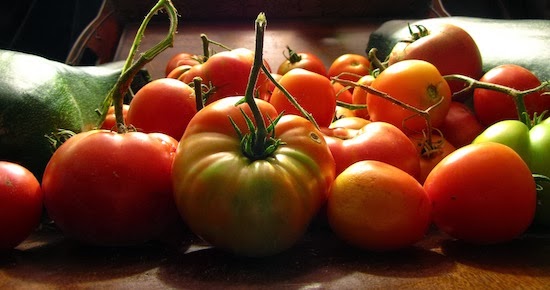I’d been meaning to read Darya Pino Rose’s Foodist for months, and finally had the time recently. Even though the book is billed as a weight loss book, which gave me pause (as in, “Not another diet book!”), it also promoted eating real food, which is a far healthier option than eating overly processed “diet” foods.
After reading the book, which I quite enjoyed, I would say that Rose has a modified non-diet approach. That is, she endorses enjoying delicious food (as she says, “Life should be awesome”) while keeping portions moderate by relearning how to feel the internal cues that tell us when we’ve had enough food. She also says that while most of what we put in our mouths should be nutritious (as well as tasty), that no one should live life feeling that they can’t have a slice of birthday cake (I loved her comparison of office birthday cakes, Tartine Bakery vs. cheap grocery store bakery). She advocates for quality over quantity so that food provides greater satisfaction with fewer calories.
The closest she gets to diet-esque “rules” is her advice to limit added sugar to once per week (while I’m all for limiting added sugars, this seems almost extreme) and to weigh yourself. Some people would feel that using a scale goes against a non-diet approach because it can lead to fixating on one thing: the number on the scale. Generally, she offers guidelines that will help readers eat more healthfully in a style that suits them (i.e., no one-size-fits-all eating plans, here).
I loved her argument for why farmer’s market produce is not more expensive (you’ll have to read the book) as well as her advocacy for home cooking. She says that if she was able to transform herself from someone who “burned water” to someone who opts to stay in and cook rather than go out to restaurants more often than not, then you can, too. She offers gentle encouragement and practical tips throughout the book. The few recipes are simple, with short ingredient lists, and look quite tasty.
Rose’s degree is not in nutrition, it’s in neuroscience. As a result, she does know how to read and interpret scientific research (pro), but there were a few points in her book that I did not quite agree with (mostly regarding gluten and celiac disease). This was not a major con, however. While I felt like she was preaching to the choir as I read, even I picked up a few useful tips (I also had the intense desire to book another trip to San Francisco so I could revisit the Ferry Plaza Farmers Market, one of my favorite places on earth). I think that a reader who was relying largely on convenience and restaurant foods, and wanted to transition to eating more “real” food, would greatly benefit from this book.
To learn more, check out Rose’s blog, Summer Tomato, and her Huffington Post article, “Foodist: Stop Dieting, Lose Weight.”








